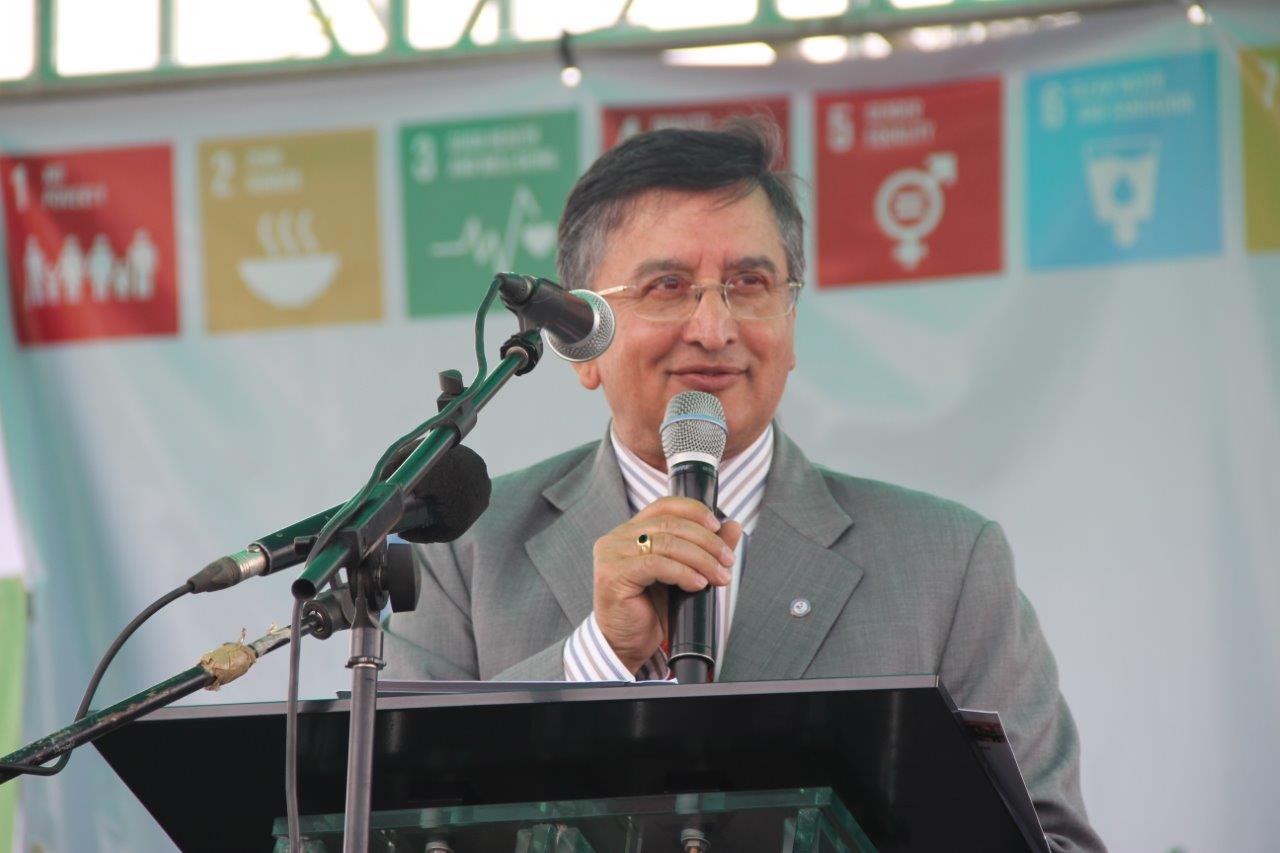By Byron Mutingwende
Radio still remains the most popular source of news and information in Zimbabwe, a senior United Nations official has said.
Speaking during the commemoration of World Radio Day at Takashinga Cricket Club in Harare on Monday 13 February 2017, Bishow Parajuli, the United Nations Resident Corrinator for Zimbabwe said that radio was one of the most popular ways to exchange information, provide social discourse and educate people all over the world.
Apart from being an active platform to save lives during natural or human-made disasters, radio helps people to engage in discussions on topics that affect them.
“In Zimbabwe, radio is still the most popular source of news and information, especially in rural areas. It’s estimated that there are over one million radio sets in the country – roughly one for every 12 inhabitants – according to the latest online PressReference,” Parajuli said.
In recognition of the significance of radio as a medium, the United Nations designated 13 February as the World Radio Day and for the first time it was officially celebrated in 2012. On the other hand, 13 February is also the anniversary of the day the United Nations established the United Nations Radio in 1946.
Parajuli added that radio plays a catalytic role in increasing awareness and participation of the people of Zimbabwe in in the implementation of the 17 Sustainable Development Goals (SDGs).
The SDGs aim to end poverty, hunger, inequality and ensure universal health coverage, quality education for all in pursuit of protecting the environment, advance good governance, rule of law and democracy.
Through radio, the public is afforded information on how the government, UN, development partners, NGOs and civil society organisations are working together in the areas of food and nutrition security, HIV, gender, jobs, response to drought, good governance and the rule of law.
Parajuli said that as Zimbabwe transitions from analogue to digital platforms, there was need to fast-track the licensing of community radios to engage communities at grass-root level on development issues and topics that affect them.
Speaking during a live broadcast programme at StarFM on the day, Kudzai Kwangwari, the Programme Manager of Zimbabwe Association of Community Radio Stations (ZACRAS) said that community radio was becoming the most prevalent medium of communication for both urban and rural communities.
“Many people are turning to community radio, the most prevalent community medium, because its affordability and reach make it so attractive to communities and development agencies,” Kwangwari said.
Kwangwari added that community radios is important tool of reaching communities that are hard to reach, helps to empower historically oppressed people and strengthen local cultures and democracy.
The media, including the medium of radio, also promotes public health campaigns as witnessed during the typhoid outbreak in Mbare, which was contained effectively.
Today the Zimbabwe Union of Journalists (ZUJ) joins the rest of the world in commemorating World Radio Day.
The Union joins forces with local broadcasters, organizations and communities in Zimbabwe in holding commemorations at Takashinga Country Club, in Highfields, Harare.
World Radio Day aims to raise greater awareness among the public and the media of the importance of radio; to encourage decision makers to establish and provide access to information through radio; as well as to enhance networking and international cooperation among broadcasters.
In his solidarity message the Zimbabwe Union of Journalists (ZUJ) Secretary General Foster Dongozi said the day was very important as it reaffirmed the indispensability of radio as a medium of “educating people, supplying information, and promoting freedom of expression across cultures”.
